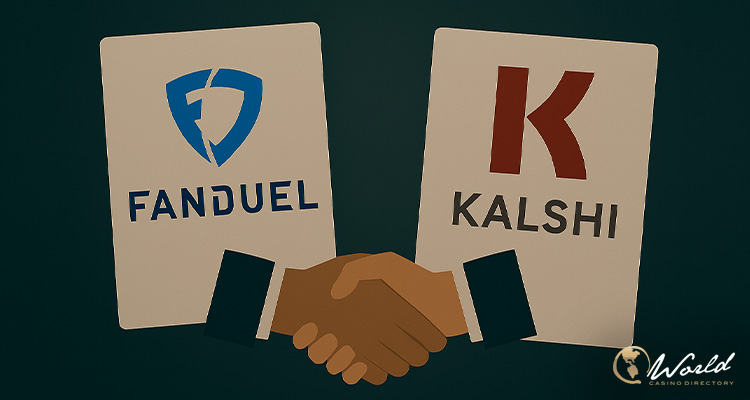In recent months, Kalshi has garnered significant attention in the sports betting world, especially after its successful legal battles to offer prediction markets, including sports event contracts. As sports prediction markets have surged in popularity, traditional sportsbooks, including FanDuel, are now exploring potential partnerships with the platform.
Kalshi’s appeal and benefits for FanDuel:
FanDuel, a key player in the U.S. sports betting industry and owned by Flutter Entertainment, is reportedly in discussions with Kalshi to integrate prediction markets into its offerings. This move comes as Kalshi has rapidly expanded, securing a legal victory to provide election predictions in 2024 and later introducing sports event markets. These contracts allow users to trade on events such as the outcome of Super Bowl games or March Madness, and Kalshi aims to eventually expand into more complex betting markets, including player props, point spreads, and parlays.
Kalshi’s rise is significant because it operates outside the traditional regulatory framework governing sportsbooks. Unlike traditional sportsbooks, which are regulated at the state level and taxed on gross gaming revenue, Kalshi is regulated by the Commodity Futures Trading Commission (CFTC). According to Front Office Sports, this distinction allows Kalshi to offer betting opportunities in all 50 states, bypassing state-level restrictions that limit sports betting in some of the largest markets, like California and Texas.
For FanDuel, a partnership with Kalshi offers access to these untapped markets while also providing an innovative way to offer non-sports-related betting, such as political elections or pop culture predictions. Kalshi’s platform is also not restricted by state taxes that sportsbooks face in high-tax states like Illinois, where a 50-cent surcharge on every bet is expected to increase FanDuel’s operating costs. By collaborating with Kalshi, FanDuel could potentially sidestep these burdens while gaining access to new markets and boosting its overall user experience.
FanDuel’s large user base of more than 12 million active players is another key benefit of the partnership. By providing Kalshi with access to this substantial pool of users, FanDuel could enhance liquidity in Kalshi’s markets, increasing their efficiency and appeal. For Kalshi, this partnership could also accelerate its growth, both by boosting its profile in the U.S. and by leveraging FanDuel’s technological expertise, such as user interface design and payment infrastructure.
The legal landscape and regulatory challenges:
While the potential partnership between FanDuel and Kalshi could reshape the landscape of sports betting, it is not without its challenges. Kalshi has faced legal hurdles from state regulators, with at least seven states issuing cease-and-desist orders in response to its offering of sports event contracts. These states, including New Jersey, Nevada, and Maryland, claim that Kalshi’s product resembles traditional sports betting, which is regulated at the state level.
Kalshi has taken these states to court, arguing that its markets fall under federal jurisdiction and should be regulated by the CFTC, not state regulators. This legal uncertainty remains a key concern for any potential partnership with FanDuel. However, Kalshi has seen some early victories in federal courts, including a recent ruling in Nevada, which has allowed the company to continue operating despite state challenges.
Kalshi is also politically connected, with former CFTC commissioner Brian Quintenz serving on its board, and Donald Trump Jr. acting as a strategic advisor. The company’s strong political ties could help it navigate future legal and regulatory hurdles. However, some industry observers worry that Kalshi’s regulatory battles may create lingering uncertainties for FanDuel, particularly as new state-level regulations are introduced.
One of the biggest draws of prediction markets like Kalshi is the opportunity to offer bets on a much broader range of events than traditional sportsbooks can legally accommodate. Kalshi allows users to trade on events such as political outcomes, entertainment awards, and pop culture moments. For example, some of Kalshi’s markets have included questions like whether Donald Trump will recognize Pride Month or who will win TIME’s Person of the Year. These types of bets offer a unique alternative to traditional sports betting and can attract a different segment of users.
This ability to tap into diverse markets is especially appealing to FanDuel, which could use the partnership to differentiate itself in a highly competitive U.S. market. Despite FanDuel’s dominant position in the sports betting space, the addition of prediction markets could provide a “sports betting lite” product, catering to users interested in broader betting opportunities while avoiding the higher regulatory and tax costs that come with traditional sports betting.



